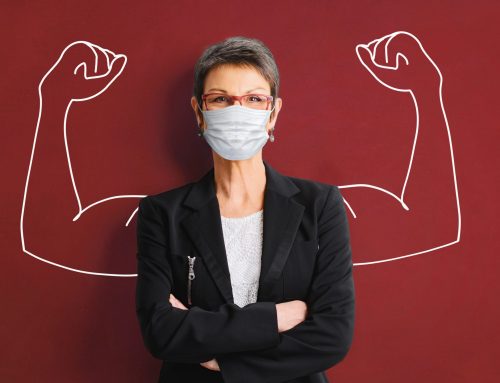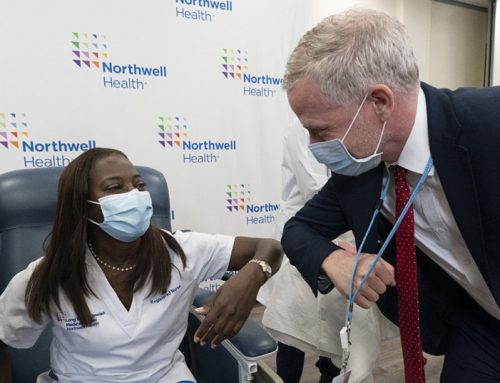Automatic Reply: I’ll Be WWS (Working While Sick)
Most white-collar workers go into the office when they feel sick, which could cause trouble as cold and flu season ramps up
Even as workplaces embrace flexible policies so employees can work from home more easily, most professionals seem to disregard any sort of cold and flu symptoms they have and come into work. This puts not only their health, but also the health of their coworkers at risk.
An astonishing 70% of business professionals said they go into their office when they feel sick, an Office Pulse study of 642 white-collar workers found. Why? Many say they come into work when they feel under the weather because they’re stressed, overloaded with work and fearful of falling behind.
What sick day? Even if employees are ill enough to take a sick day, many still end up working: 64% of professionals said they’ve called in sick but still felt the need to work (either from home or the office).
If you work while you’re sick, why do you do it?0% I need to get stuff done, can’t fall behind 0% Don’t want to lose my time off 0% My boss expects me to work even when sick 0% I’d rather work than lay in bed |
Your Office Is Probably Making You Sick
When looking at generations, Millennials seem to be the most likely group to call out sick with mild symptoms, when compared to other generations. While some may view this behavior as slacking or a lack of fortitude, it’s probably a smart move.
Some employees may think coming into work sick makes them look dedicated and committed to their job, but it’s not the best idea when it comes to staying healthy. Offices are breeding grounds for germs, which can spread almost instantly. In fact, one study found that a sick worker could spread their germs on 40-60% of frequently handled surfaces around the office in just 2-4 hours.
What would you do to prevent a sick coworker from coming into work?
|
Add that scary stat on top of last year’s brutal flu season and you may want to rethink your habit of working while sick. The CDC said last year’s flu season was the first to be classified as “a high severity across all age groups,” but that didn’t stop white-collar workers from going into the office. When looking specifically at last flu season, 48% said they went into work while sick even as news piled up about the deadly and contagious flu season. Most workers aren’t just phoning it in at the first sign of a cough. 69% said their symptoms have to be “severe” (fever, chills) to get them to call in sick. 19% said their symptoms need to be “medium” (stuffy nose, sore throat) and just 12% said “mild” symptoms (groggy, headache) result in them taking the day off.
How severe do your symptoms have to be for you to call in sick from work?
Mild(Groggy, headache) |
Medium(Stuffy nose,
|
Severe(Fever, chills) |
Other insights include:
- The CDC said the number of adults who got the flu shot declined last season. A surprising stat, since 71% of workers said their office gives them access to the shot
- 78% of Senior Managers or above go into the office when sick, the biggest culprits
- 32% of workers have called in sick in the past year when they weren’t actually sick
Even while a majority of professionals said they come into work while sick, they seem to have a different point of view about their sniffling coworkers: 34% classified their coworkers as “selfish” for coming into work with a seasonal sickness. Another 29% called their coworkers “stupid.”
The hypocrisy goes even further: 76% of workers said they’ve caught a cold at work, and of that group, 66% blame their sick colleague for spreading the germs.
|
The number of white-collar workers that have called in sick, but still ended up working 64% |
The percent of professionals that feel their productivity is reduced when they’re sick 84% |
So as this cold and flu season ramps up, rethink your working while sick approach. Take that extra day off, or just work from home. You could be sparing yourself – and your coworkers – some grief.
About Office Pulse
Office Pulse by Captivate offers marketers timely analysis and insights from a proprietary panel of upscale professionals in the top markets. The Office Pulse panel of more than 8,000 influential consumers and business decision makers includes C-level executives, Millennials, middle management, small business owners, working women and working moms.
About Captivate
Known for its vast network of nearly 12,000 elevator displays located in 1,600 premier office buildings across North America, Captivate connects advertisers with 13 million unique monthly viewers through creative, research-driven and Nielsen-measured advertising and marketing programs. By engaging its viewers with timely news and actionable information that helps balance the personal and professional demands of the workday, Captivate provides advertisers with a highly desirable and difficult-to-reach audience of affluent and influential business professionals. Founded in 1997, Captivate is owned by Generation Partners. For more information, please visit www.captivate.com.








